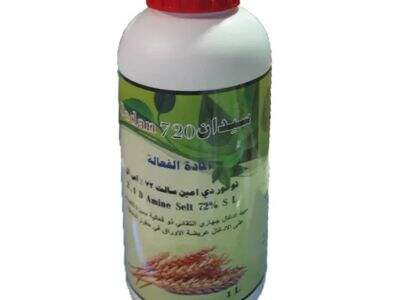Insecticides are designed to kill insects, which can cause harm to plants or crops. One type of insecticide is called Fipronil, which farmers commonly use to keep pests away from their corn. But is Fipronil bad for corn? Here’s a closer look at what Fipronil does to corn plants.
Impact of Fipronil on Corn Plants
Fipronil works by disrupting the nervous system of insects. This results in their being unable to move and, eventually, to dying. Though Fipronil does its job of killing pests such as corn borers and aphids effectively, a lot of people have concerns over how it affects the corn plants. Some research has found that corn plants absorb Fipronil through their roots and that the chemical can move into their leaves and kernels. This also raises the question if Fipronil had the potential to become damaging towards corn fields over time.
The Potential Risks of Fipronil
The fear is that Fipronil could not only harm pests, but also beneficial insects like bees and butterflies that are necessary to pollinate corn. Second, Fipronil could remain in the soil and water and damage other plants and animals in the area. Some scientists think we still do not know the entire picture of how Fipronil affects corn fields in the long term, and they say additional studies are needed to determine whether this is good for the environment.
Do We Need to Fear Fipronil as a Threat to Corn Production?
Some farmers are beginning to ask whether using Fipronil is worth the risk to their crops, and the environment. Corn is a significant food crop globally, and any disruptions to its production could result in severe food scarcity. Farmers and scientists are debating whether the pros of Fipronil use outweigh possible harm to corn production in the years ahead.
Fipronil Safety in Corn Production An Argument Established
Fipronil to protect their corn to ensure a good crop. When used as directed, they say, that Fipronil is safe for plants and the environment. But environmentalists and some scientists push for safer, less damaging alternatives to Fipronil. Instead, they propose use of an alternative approach like conservation or integrated pest management and organic insecticides to protect corn crops and harm nature less.
Safer Insect Hotels
For anyone, broadleaf weeds killer farmer or gardener, in the market for an alternative to Fipronil, several exist. For corn pests, for example, consider using neem oil, a botanical insecticide. Some farmers are also experimenting with biological control, such as using predator insects to reduce pest numbers. By examining these alternative solutions, corn growers may salvage their crops in a manner that is friendlier to the environment.
In short, Fipronil can be used to treat pests in a corn field, but you should consider its effects on the corn and the surrounding environment. As further studies will be conducted on the safety of Fipronil, farmers are encouraged to opt for insecticide options that are kinder to nature. CIE Chemical is committed to promoting sustainable, organic and environmentally friendly farming methods—to keep our food crops healthy and sustainable.
 EN
EN
 AR
AR
 FR
FR
 EL
EL
 HI
HI
 IT
IT
 PT
PT
 RU
RU
 ES
ES
 TL
TL
 IW
IW
 ID
ID
 UK
UK
 VI
VI
 SQ
SQ
 TR
TR
 FA
FA
 AF
AF
 MS
MS
 SW
SW
 AZ
AZ
 UR
UR
 BN
BN
 HA
HA
 IG
IG
 JW
JW
 KM
KM
 MN
MN
 SO
SO
 ZU
ZU
 MY
MY
 KK
KK
 TG
TG
 UZ
UZ
 AM
AM
 KU
KU
 KY
KY
 PS
PS
 SN
SN
 XH
XH

